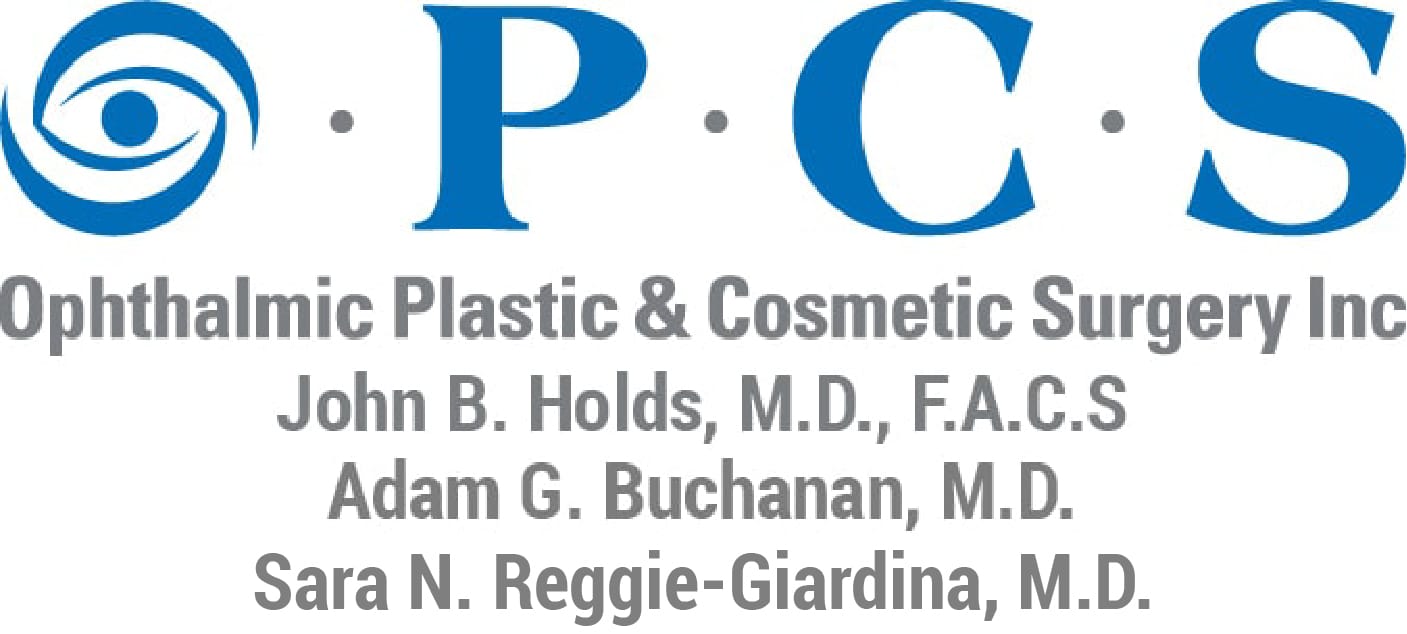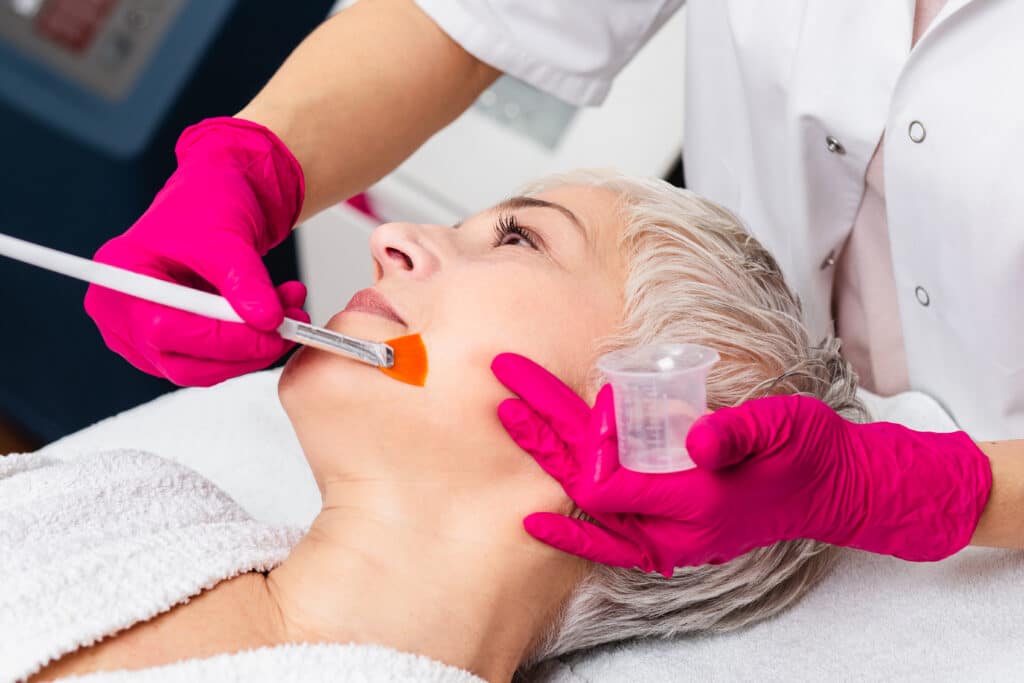Chemical Peels in St. Louis, MO
What is a Chemical Peel?

The idea of chemically peeling the skin may sound harsh. It isn’t. Chemical peels are formulated for specific results. The three types of peels that are performed today include:
- Superficial or light peels. Also referred to as a lunchtime peel, this treatment applies a mild acid like alpha-hydroxy acid to the skin for gentle exfoliation. There are virtually no side effects to a lunchtime peel.
- Medium peels utilize strong acidic ingredients that penetrate the outer and middle layers of skin cells. This treatment causes mild to moderate flaking and peeling that may last a few days. However, because deeper layers of tissue are affected, the regeneration of healthy new skin cells is accelerated.
- Deep chemical peels use phenol or trichloroacetic acid to permeate the middle layer of the skin. A deep peel also causes several days of redness, flaking, and peeling. This treatment is performed less frequently than lighter peels and decreases the appearance of scars, freckles, age spots, and moderate lines.
Which Chemical Peel is Best for Me?
We offer a variety of Skin Medica® Chemical Peels. Please schedule and appointment with our aesthetic nurse injectors. They will be happy to consult with you and discuss what peel is the right one for your skin needs.
Illuminize Peel
This peel is ideal for those on the go! It helps to brighten and tighten the skin. Patients will benefit from a reduction in fine lines and wrinkles and sun damage. This peel helps to improve skin color, clarity, and texture. This is an ideal peel for first-time patients or those who are seeking a quick skin enhancement with little to no visible peeling.
Vitalize Peel
This is a superficial peel designed for the treatment of mild-to-moderate skin imperfections such as fine lines and wrinkles, sun damage, acne, acne scarring, hyperpigmentation and melasma. Clinical studies have shown enhanced collagen production and epidermal thickening. Generally, patients experience mild-to-moderate peeling for 2-5 days. Three to six peels are recommended for best results. Frequency of peels can be as soon as 3-4 weeks.
Rejuvenize Peel
This is the strongest of the Skin Medica Peel Systems as it targets the deeper layers of the epidermis for enhanced exfoliation. Rejuvenize Peels are designed to reduce the appearance of moderate-to-severe skin imperfections, fine lines and wrinkles, sun damage, acne, acne scarring, hyperpigmentation, and melasma. Patients experience moderate peeling for approximately 2-5 days. Three to six peels are recommended for best results at a frequency of every 6 weeks.
Are Chemical Peels Safe for All Skin Types?
How should I Prepare for a Chemical Peel?
Tips for a great chemical peel experience include:
- Stop exfoliating at least one week before a peel. Even a light chemical peel is going to remove surface debris and damaged skin cells. Remember that exfoliating ingredients may be present in skin care products. Check labels to make sure they are gentle and nonabrasive.
- Talk to your clinician about the use of acne medications and products or anti-aging products. Some of the creams and serums that are recommended for acne can be drying, and we don’t want dry skin going into the peel process. Anti-aging ingredients like retinol may do the same thing and will need to be avoided.
- Hydrate. A chemical peel can be drying to the skin and the best way to prepare for this is to make sure the skin is hydrated from the inside out.
- Schedule accordingly. Depending on the depth of peel you wish to have, you may experience several days of post-treatment redness and flaking. Ideally, peels are performed a few weeks away from special occasions.
How should I care for my skin after a Chemical Peel?
Special aftercare instructions may be provided based on the peel a person has. Generally, the best way to care for the skin after a peel is to protect it. After a peel, the skin is more photosensitive and susceptible to sun damage. To prevent this, apply broad spectrum physical sunscreen with SPF 30 every day. Physical sunscreens contain ingredients such as zinc oxide that sit on the skin rather than soak in. Chemical sunscreens are not ideal because they soak into the epidermis and block UV light with chemical ingredients that could be irritating to sensitive skin. Sun exposure should also be limited for at least one week after a chemical peel.
Are there any activities I should avoid after a Chemical Peel?
Depending on the strength of chemical peel performed, it may be necessary to avoid:
- Sun exposure
- Certain skin care products, such as Retin-A and benzoyl peroxide
- Pulling, picking, and rubbing the skin as it flakes and peels
- Steam saunas, hot tubs, and cardio should be avoided for 24 hours or longer
Are Chemical Peels painful?
Chemical peels are not painful even when stronger acidic ingredients are used. Clients find both light and medium peels quite tolerable and limited to sensations like tingling, mild stinging, and itching.
Are there any risks associated with Chemical Peels?
Chemical peels are considered a safe method of managing healthy skin. However, it is important to obtain treatment only from a trained, licensed professional. Without proper oversight, a chemical peel can cause blistering, lingering redness, pigment problems, or scarring. These risks are very low when a chemical peel is conducted in the appropriate manner.


